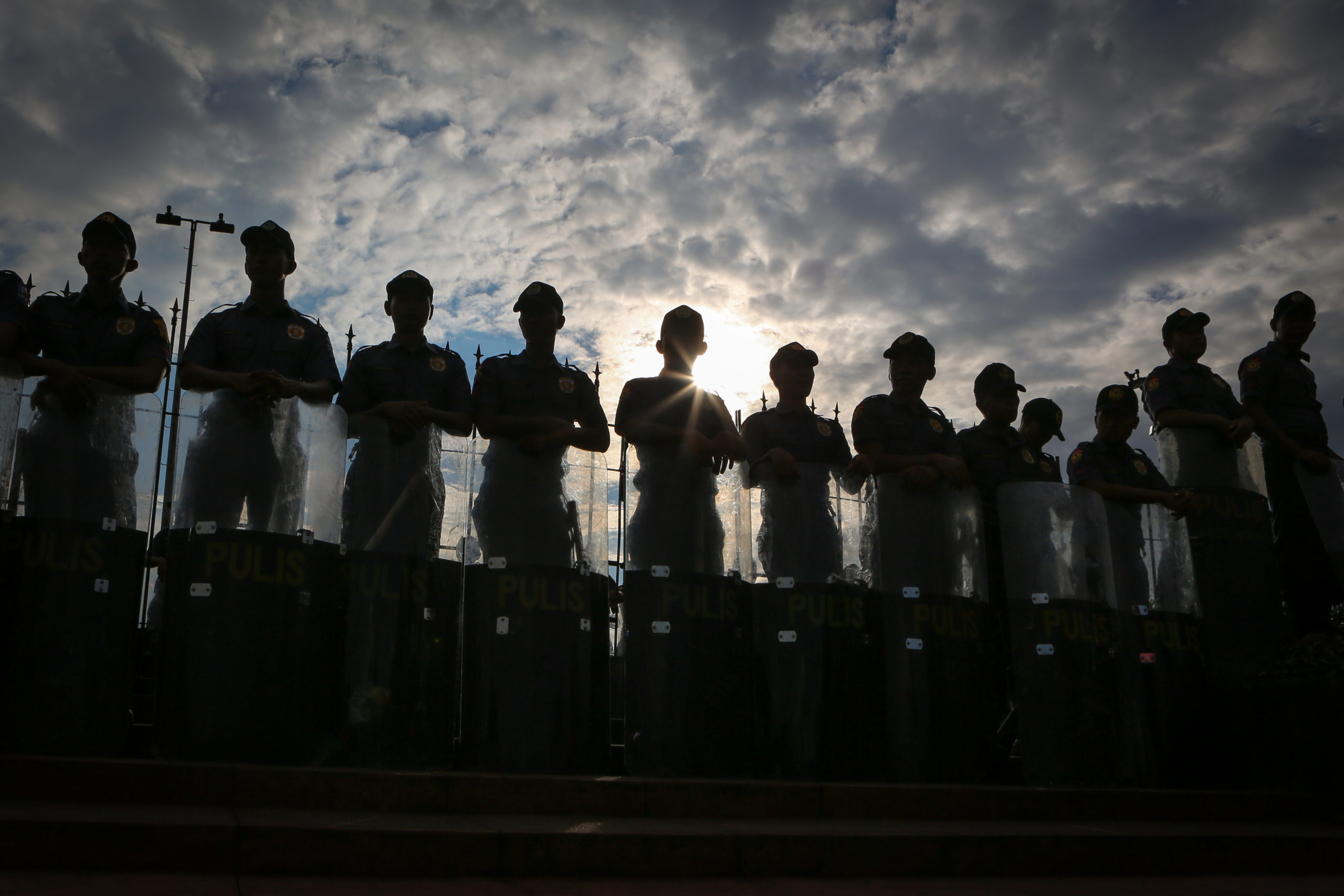On December 7, 2021, the Supreme Court (SC) voted on the 37 petitions filed against the controversial Anti-Terror Law. The law was declared partially unconstitutional. However, this only affects two sections: firstly, that the Anti-Terrorism Council (ATC) can list individuals or groups as terrorists at the request of other countries; and secondly, that dissent can be defined as an act of terrorism if intended to cause harm or violence. Section 4 in the law was revised as follows: “Terrorism as defined in this section shall not include advocacy, protest, dissent, stoppage of work, industrial or mass action, and other similar exercises of civil and political rights.”
The petitioners sought a temporary restraining order (TRO) against the entire law through the 37 lawsuits filed. Neri Colmenares, legal counsel for the petitioners, says the changes are a big step that could help people feel safer in criticizing the government. However, the law is still very dangerous. After all, it retained much of the problematic content. Section 25 still allows the ATC to label individuals and groups as “terrorists” without a court hearing, including freezing their accounts. Section 29 also grants the power to detain “terrorists” without prosecution for up to 24 days.
Colmolares and the rights group National Union of Peoples’ Lawyers (NUPL) announced they will file a motion for reconsideration. Human rights groups are also highly critical of the SC’s decision. The network In Defense of Human Rights and Dignity Movement (iDEFEND) says the law “cements Duterte’s authoritarian rule, legitimizes atrocities against human rights defenders and facilitates the wholesale abrogation of fundamental civil and political rights in the guise of counter-terrorism.” The fact that indigenous communities in particular are affected by repression in the name of so-called counterterrorism is highlighted by the group Purple Action for Indigenous Women’s Rights (LILAK).
The ATC classified the National Democratic Front of the Philippines (NDFP) as a terrorist organization. This has put the peace talks to mediate the armed conflict between the New People’s Army (NPA) and the government permanently on hold. Also under sharp criticism are the counterinsurgency measures and red-tagging of the National Task Force to End Local Communist Armed Conflict (NTF-ELCAC), as well as increasing militarization of schools and regions of indigenous communities.
For more information on the petitions and hearings, read our Updates on the Anti-Terrorism Act of 2020.

